In 1999, during his second to last pastoral trip to Poland John Paul II visited 21 localities. The Holy Father came to Poland, which after the difficult transformation period in the early 1990s was begining to feel an economic upturn and had a relatively stable democracy. A year before the Pope’s visit Poland joined NATO… Continue reading John Paul II’s Speech to the Polish Parliament

